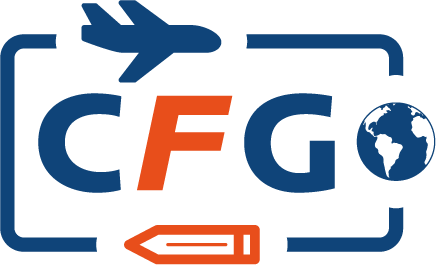Farnborough Airport-based i6Group and Liège Airport (LGG) have signed a landmark 15-year partnership agreement to pioneer integrated digital aviation fuel management solutions. The scheme will cover the full fueling lifecycle from livestock management and automated reconciliation to paperless into-plane fueling. It will include live resource tracking and auditable data for every event (delivering 24/7 operational visibility), and will support Liège Airport’s ambitions for sustainable, data-driven cargo growth.

Liège selected i6 for its fully integrated digital fuel management solution. The decision was driven by i6’s ability to deliver real-time automation, precise data capture, robust reporting capabilities, and round-the-clock global support. The cooperation agreement follows a thorough evaluation process in which the offers of various providers were closely examined. i6 claims that a one-minute delay forcing an aircraft to stay on the ground longer than needed, costs the operator around USD 100 in additional spending caused by avoidable fuel burn, crew hour costs, further delays caused by missed slot connections – and increases greenhouse gas emissions.
Smart fuel supplies vs old school practices
Due to these factors, the pressure on fuel providers to deliver kerosene to airlines and airports safely, accurately and on time, is immense.
However, in everyday practice, deliveries are often still old school, as evidenced by the fact that many ground fueling operations still rely on paper tickets, verbal dispatching, and legacy systems. These processes slow down reconciliation, increase the risk of errors, and make it hard to respond when plans change in real time.
The result? Airlines looking for operational efficiency are increasingly choosing partners who can keep pace with their own digital transformation.
And this is precisely what “Cargoland” Liège Airport has done in its partnership with i6. By collaborating, both players are eager to set a new standard for digital aviation fuel management, enabling airlines, cargo operators, and fuel suppliers to benefit from real-time operational data, automated workflows, and enhanced compliance and environmental performance. “Liège is a linchpin in the global air cargo network, and our partnership with i6 Group will help us set new standards for operational transparency, efficiency, and sustainability,” said Christian Delcourt, Head of Communications at LGG. “Digitizing our fuel operations is central to our long-term vision for a connected, resilient, and eco-conscious airport.”
Paperless technology
With over 1 million tons of air freight handled annually, Liège Airport’s continuous investment in innovation and digital infrastructure has made it a preferred partner for global logistics integrators and e-commerce players. In a joint release, both partners stress that their collaboration will lead to smarter fuel supplies and strengthen Liège’s commitment to operational excellence and environmental stewardship – delivering measurable reductions in manual workload, carbon emissions, and fuel wastage through the adoption of cloud-based, paperless technology.
“We’re delighted to work with Liège Airport on this industry-leading project,” exclaimed Steve Uhrmacher, CEO at i6 Group. “Our technology is proven at over 200 airports worldwide, but partnering with one of the world’s largest freight airports allows us to deliver impact at a truly global scale. Together, we will demonstrate how data-driven operations can underpin both business growth and climate responsibility.”
As part of i6 Group’s customer feedback campaign, a cluster of trees is planted for every completed response. So far, 700 trees have been planted as result of the campaign, helping grow an i6 forest in partnership with Ecologi. The UK-based platform supports and motivates businesses to measure and reduce their emissions, restore the planet, and report their progress for every step they take towards net-zero.
Furetank promotes transition to biofuel
Further north, in the maritime sector, Swedish shipping company, Furetank has taken steps to accelerate the transition to fossil-free ocean transports by stimulating the use of renewable fuels. The step is in line with the FuelEU Maritime regulation. The schemerequires commercial vessels within the EU to gradually reduce greenhouse gas emissions, starting with 2% during 2025–2029 (compared with 2020 levels). By 2050, emissions must be reduced by 80%. Those who fail to meet EU demands will otherwise face heavy penalties. The idea is to make it costly for companies that emit large amounts of greenhouse gases, and profitable for those who transition. In this way, the regulation aims to stimulate the use of renewable fuels.

For Furetank management, this is good news and an opportunity to fully leverage its investments in climate-saving technology. Thanks to the company’s Vinga series of in-house designed dual fuel tankers, powered by liquefied methane, the transition to biofuel can be made without delay or technical modification. Now that the incentives and business models are in place for the more expensive biofuel, Furetank has chosen to move far ahead of EU requirements.
“We have long awaited and prepared for this much-anticipated shift. We have secured a contract for large-scale deliveries of mass-balanced biomethane, which will power all of our Vinga vessels trading in the EU throughout 2025. This gives us the opportunity to trade surplus emission reductions — both for ourselves and for others,” said Viktoria Höglund, CEO of the new company called CO2mpliance.
Launching an emissions trading company
Since Furetank has already done the groundwork to establish a framework for the new trading system, CO2mpliance will also handle compliance with the FuelEU regulation on behalf of other shipping companies. Customers will include both operators moving ahead of EU requirements with a surplus to sell, and those unable to reduce emissions from their fleets fast enough and therefore needing to buy.
“Furetank has a tradition of creating its own functions demanded by the market. For example, we have our in-house chartering department, which also serves other shipping companies. Now we are taking the same step into this new market created by the EU. We have the entire chain of expertise required to conduct the transactions and administration, in line with the new regulation and the specific conditions of shipping,” stated Ms. Höglund.




